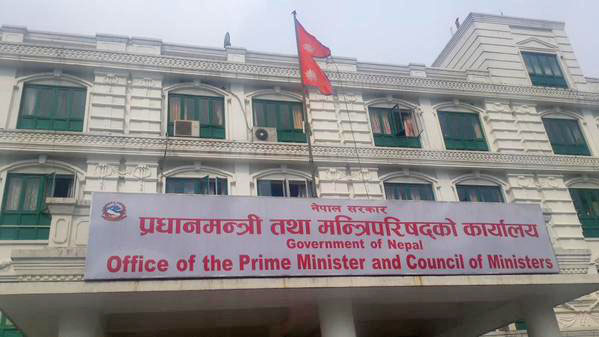Statistics bill proposes establishment of national data system
Kathmandu, March 13
The Office of the Prime Minister and Council of Ministers has registered the Statistics Bill-2020 at the National Assembly, proposing to make data production, processing, storage, publication and distribution more credible and systematic.
The preamble of the bill registered at the NA yesterday said it aimed to facilitate the federal, provincial and local governments to formulate and implement their policies and programmes effectively. The bill envisions establishment of National Data System, which will maintain integrated records of data collected by government offices and public entities in accordance with the prevailing law and rules. National Statistics Office shall maintain coordination between the data system and agencies concerned
As per the bill, the federal government may issue a notified order to NSO for collection of data on any issue. “If such order is received, the NSO shall collected data related to any person and public or private organisation,” reads Section 4 of the bill. Any agency or public entity may also collect or publish data on any subject by obtaining permission from the NSO. However, no permission shall be granted for collection and publication of data which cause adverse impacts on national interest, social or cultural harmony and diplomatic relations; and pose threat to governance system of the country, internal affairs or peace and security.
Any agency or public entity authorised to collect data shall have to get approval from the NSO before their publication or use. “Any detail, record, information, data and electronic record of any person shall be used only for collective statistical purpose to maintain individual privacy. However, personal details may be submitted to a court as evidence, as sought by the concerned agency in the course of criminal investigation,” reads Section 9 of the bill.
Provinces and local levels may also produce, process, store, publish and distribute data as deemed necessary, without prejudice. It requires the NSO to maintain data in electronic form. Prescribed government agencies or public entities may get full or partial access to the electronic records as per the law.
The bill stipulates a provision of a 28-member National Data Council headed by vice-chair of the National Planning Commission for oversight and regulation of the data system. Any act of restricting data collection, providing false information during data collection, refusal to provide information, collection or publication of data without permission of the NSO and causing damage to computer database shall be deemed to have committed an offence.
“Any person or organisation committing an offence as referred to in this bill shall be liable to a fine not exceeding Rs 40,000 or an imprisonment for a term up to one year or both depending on the magnitude of the offence,” reads the bill. The quantum of punishment is higher for government officials.
The Government of Nepal shall act as plaintiff in the cases filed with the court. The federal government may formulate necessary rules and guidelines to implement the objectives of this bill. If endorsed by both houses of the Parliament, the bill will replace the existing Statistics Act-1959.






